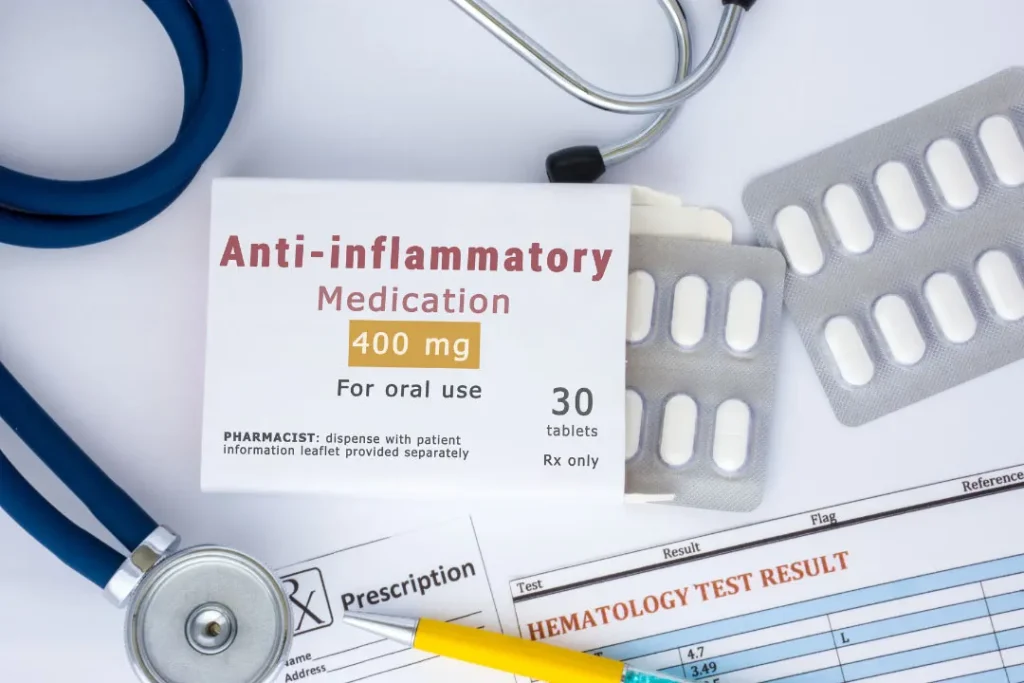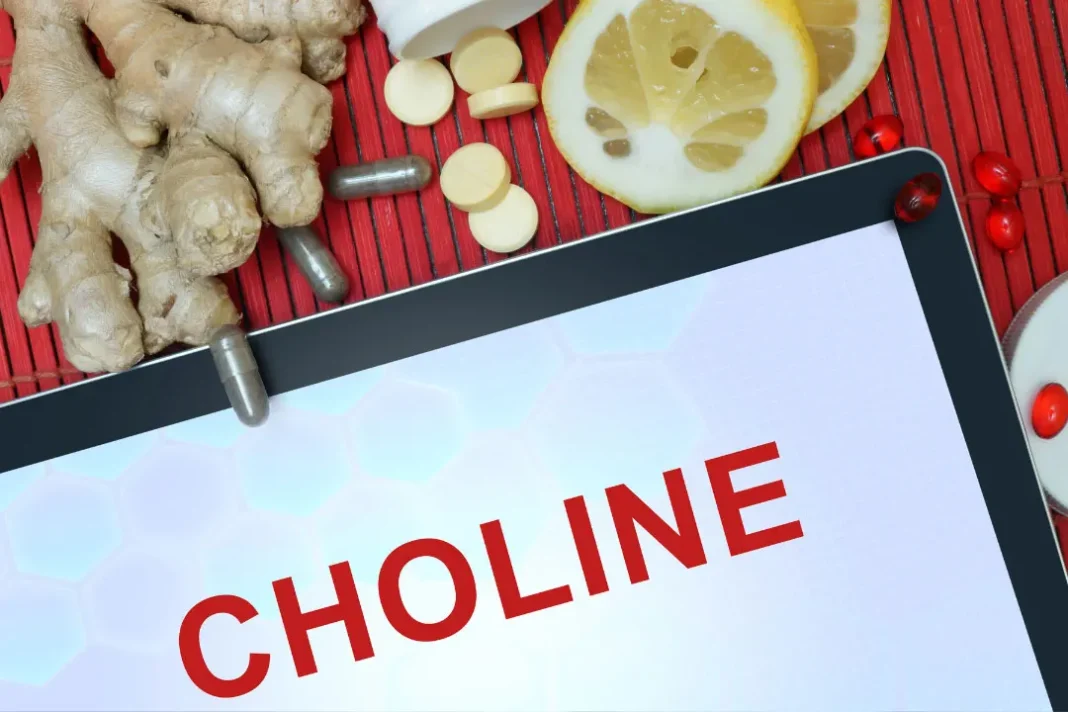Choline plays a vital role in prenatal development and offers important benefits during pregnancy. From healthy brain development to reduced risk of certain defects, discover the seven critical choline benefits in pregnancy and how you can get adequate amounts of this nutrient.
Expectant parents always want the best for their babies, but there are many conflicting voices when it comes to what’s best for prenatal development. It’s easy to get caught up in the storm of instructions, recommendations, and information and come out of it wholly confused as to what is truly beneficial or detrimental for babies. You should never start taking a new dietary supplement while pregnant without first consulting with a physician.
Among the various dietary supplements that purport to be helpful for expectant parents and their babies, choline stands out as one of the most commonly recommended. Choline is a necessary nutrient, not only for pregnant individuals but for everyone. However, the human body can’t produce sufficient levels of it on its own. While choline’s benefits extend far beyond pregnancy, its implications for prenatal health are particularly remarkable. These are some of the choline benefits in pregnancy.
You May Also Like:
5 Great Benefits of Using a Prenatal Drink Mix
The Best Organic Women’s Supplements to Take
The 7 Critical Choline Benefits in Pregnancy is an original (HerHealthWatch) article.
Choline benefits in pregnancy:
Cognitive development
Choline affects cognitive function even in adults and has an especially prominent impact on learning and memory. The body metabolizes ingested choline into neurotransmitters, which are compounds essential for communication within the nervous system. Choline can also be beneficial to prenatal brain development, and its benefits may be noticeable even multiple years into the child’s life.
A 2022 study found that children whose mothers consumed more choline during pregnancy – specifically, twice the daily recommended amount – performed significantly better on tests of sustained attention, even at the age of seven. This study provides compelling evidence supporting choline benefits in pregnancy, particularly for the developing brain.

Choline benefits in pregnancy:
Prevention of mental illness
There is evidence to support a genetic basis for mental illness, although the environment certainly also plays a role. Choline deficiency is often linked to anxiety and mood disorders in adults but may also have similar effects on developing brains. A 2015 review suggested a link between sufficient choline levels during pregnancy and improved neuronal functions in the child.
Conversely, individuals with schizophrenia exhibited deficits in these functions, suggesting a potential preventive role for choline. As a fetal brain develops, the availability of certain nutrients can impact the development of neuronal pathways. In some cases, insufficient nutrient supply can contribute to the onset of mental illness later in the child’s life.

Choline benefits in pregnancy:
Reduced risk of birth defects
Birth defects are a concern for any expectant parent, as some defects can be life-threatening. Neural tube defects, which impact the nervous system, primarily the brain and spine, are particularly worrisome. Adequate functioning of these vital organs is crucial for survival, and so birth defects like anencephaly, characterized by insufficient development of the brain, are of particular concern. Ensuring sufficient choline levels during pregnancy is one way to reduce the risk of neural tube defects. A 2009 study discovered that expectant mothers with higher blood levels of choline exhibited fewer risk factors for anencephaly.

Choline benefits in pregnancy:
Promotion of healthy cellular development
During fetal development, the fetus is essentially synthesizing all of the cells needed for a healthy human body. This includes cell membranes, a vital part of cellular anatomy that controls the passage of substances into and out of cells. Studies have shown that choline plays a role in cell membrane synthesis. Choline is metabolized by the body into phosphatidylcholine, which is a major component of cell membranes. Therefore, choline may help form healthy cell membranes during fetal development.
The 7 Critical Choline Benefits in Pregnancy is the (HerHealthWatch) report.

Choline benefits in pregnancy:
Improved placental health
The placenta is a temporary organ that protects the developing fetus and regulates nutrient transmission. It’s important to support placental health during pregnancy, as failure to do so can result in serious complications. Sufficient choline intake is one way to do so. Choline interacts with the placenta as part of an anti-inflammatory process, protecting the placenta from potential harm. These interactions may also play a role in fetal brain development.

Choline benefits in pregnancy:
Greater energy
Pregnancy is commonly associated with fatigue. It comes along with widespread body changes and hormonal disruptions that can drain expectant parents’ energy and leave them exhausted. It’s important to get as much rest as possible during pregnancy, but with sleep disruptions also common, that can be difficult. Choline may help alleviate some of the fatigue associated with pregnancy. A 2019 study found that supplementation with choline and betaine, both commonly recommended during pregnancy, can contribute to more efficient energy metabolism in the body. This can lead to greater energy levels, allowing individuals to push through the exhaustion often experienced during pregnancy.
Choline benefits in pregnancy:
Prevention of liver problems for parents
Liver conditions and diseases can be a common pregnancy complication. In the condition known as intrahepatic cholestasis, bile ducts are clogged during pregnancy, which, in severe cases, can necessitate an early-term delivery. Choline can support liver function during pregnancy, helping prevent the formation of blockages in the bile ducts and ensuring the well-being of both the parent and the baby.
With all of the choline benefits in pregnancy, it’s a good idea to consider increasing your choline intake. There are many natural food sources that contain choline, with seafood being a particularly excellent option. Additionally, dietary supplements such as Kori Krill Oil Softgels provide a convenient way to enhance your choline and omega-3 intake without requiring you to change your food consumption. These thrice-daily softgels are easy to take and don’t have the usual fishy aftertaste associated with fish oil supplements.
Both choline and omega-3s are beneficial nutrients during pregnancy, contributing to healthy fetal development in different ways. Like choline, omega-3s can benefit fetal brain development and may also support retinal development while lowering the risk of postpartum depression. According to Nancy Chan, the CEO of Kori Krill Oil, “We’re focused on the health benefits that this amazing resource – krill – can provide to the consumer. These nutrients work so hard for you, and your body cannot make them on its own.”
Choline benefits in pregnancy:
Not to be overlooked
Choline can be an incredibly beneficial supplement during pregnancy, offering benefits for both fetal development and the health of parents during a time of frequent body changes and difficulties. However, as with any dietary supplement, expectant parents should check with a physician before starting a course of choline or any other dietary supplement.
Additional links for further reference:
NIH Office of Dietary Supplements: Choline Fact Sheet for Consumers
AHA Journals: Choline Pathway Nutrients and Metabolites and Cognitive Impairment After Acute Ischemic Stroke
NIH National Library of Medicine: Choline in the treatment of rapid-cycling bipolar disorder
Important Note: The information contained in this article (The 7 Critical Choline Benefits in Pregnancy) is for general informational purposes only, and should not be construed as health or medical advice, nor is it intended to diagnose, prevent, treat, or cure any disease or health condition. Before embarking on any diet, fitness regimen, or program of nutritional supplementation, it is advisable to consult your healthcare professional in order to determine its safety and probable efficacy in terms of your individual state of health.
Regarding Nutritional Supplements Or Other Non-Prescription Health Products: If any nutritional supplements or other non-prescription health products are mentioned in the foregoing article, any claims or statements made about them have not been evaluated by the U.S. Food and Drug Administration, and such nutritional supplements or other health products are not intended to diagnose, treat, cure, or prevent any disease.


